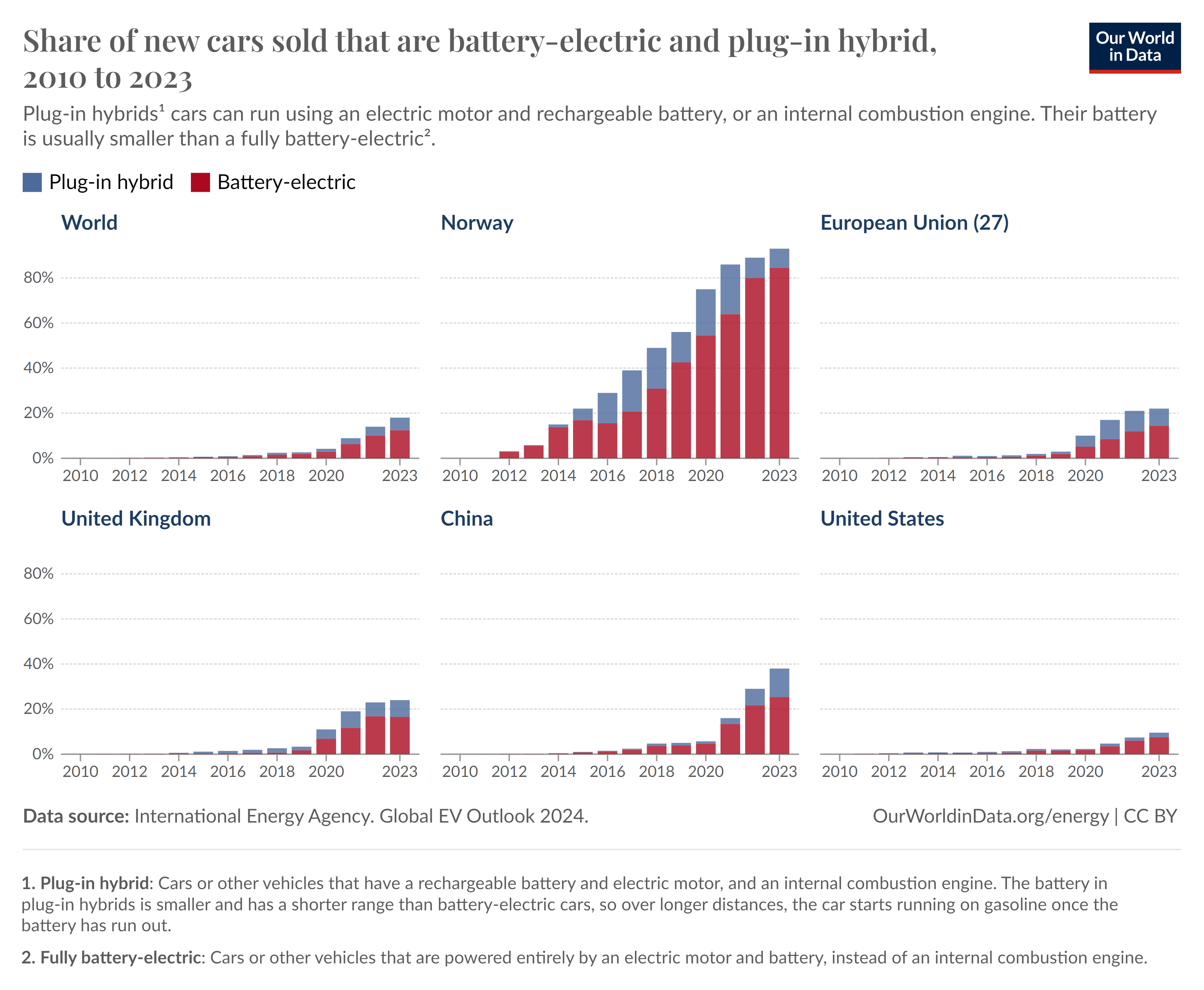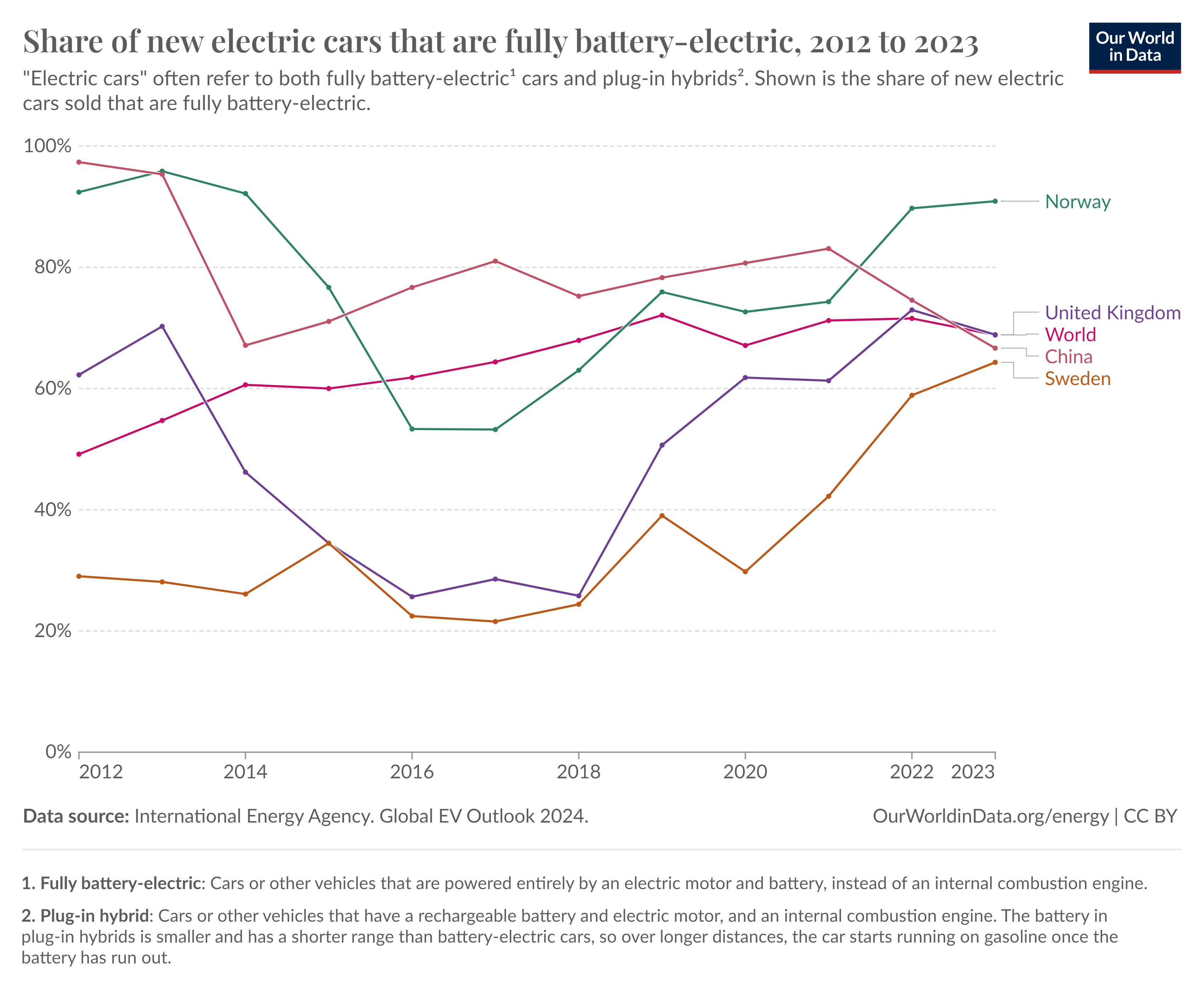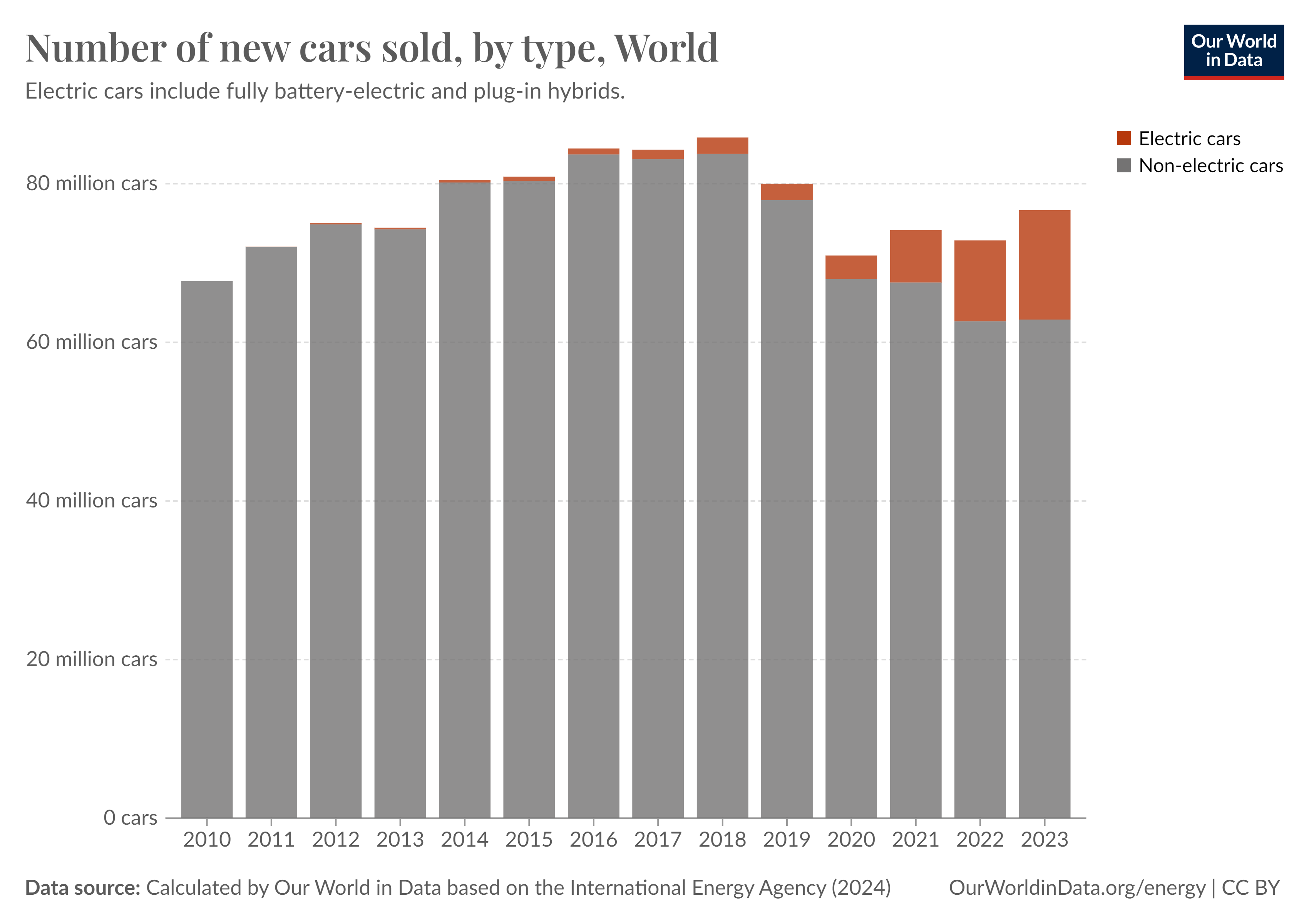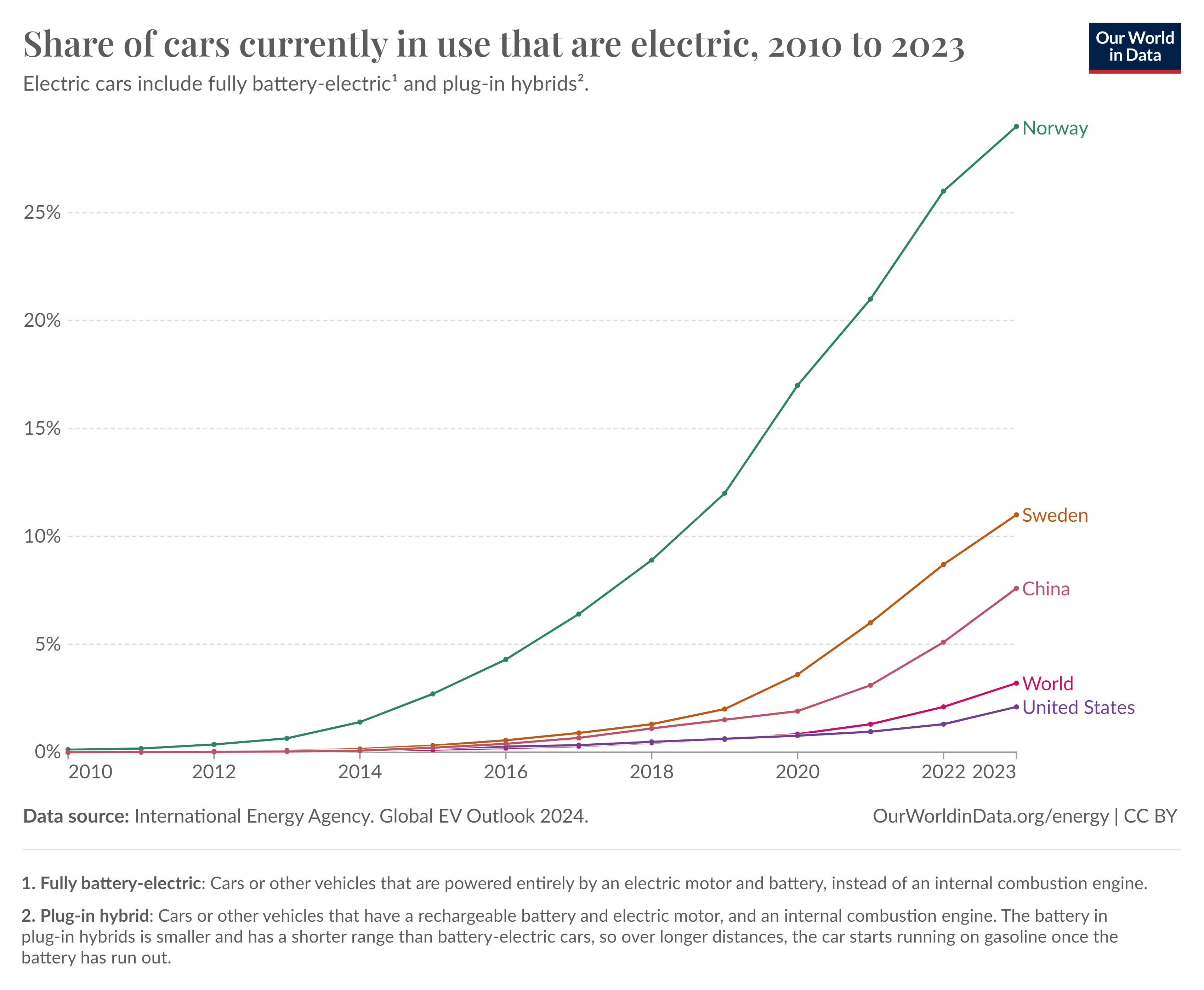ELECTRIC VEHICLES: Rivian and Volkswagen finalize their $5.8 billion joint venture to develop electric vehicle software that will be used in models made at Rivian’s planned Georgia plant and Volkswagen’s Tennessee factory. (New York Times; Atlanta Journal-Constitution, subscription; Chattanooga Times Free Press)
ALSO:
OIL & GAS:
POLITICS: South Carolina lawmakers consider a proposed Dominion Energy and Santee Cooper gas-fired plant and a previous failed plan to build a nuclear plant as they determine how to boost energy generation to meet growing power demand. (South Carolina Public Radio)
HYDROGEN: Appalachian residents worry a planned hub to use primarily natural gas to create hydrogen will increase fracking activity, produce pollution and degrade quality of life — part of a pattern of criticism that’s emerged against hydrogen hubs around the country. (Environmental Health News)
OVERSIGHT: Largely in response to criticism of a lack of transparency, Virginia regulators publish a database of data centers’ air permits, which allow them to run diesel generators during outages. (Virginia Mercury)
GRID: Georgia residents react against Georgia Power’s plan to build a transmission line through one of metro Atlanta’s oldest neighborhoods. (WANF)
EFFICIENCY: Two companies partner on a plan to distribute thousands of smart thermostats across Texas in hopes of developing a nearly 1 GW residential virtual power plant by 2035. (Utility Dive)
BIOFUELS:
CLIMATE:
UTILITIES: Tampa Electric files federal documents indicating it could file with Florida regulators to recover roughly $400 million from customers for damage caused by Hurricanes Helene and Milton. (News Service of Florida)
ENVIRONMENT: A study ranks West Virginia as the country’s least environmentally sustainable state, based on factors that include high carbon dioxide emissions, low renewable energy use, and limited electric vehicle adoption. (WV News)
ELECTRIC VEHICLES: Colorado advocates say a recent increase in electric vehicle sales shows state and federal incentives are working as intended. (Colorado Sun)
ALSO:
OVERSIGHT: California prepares to defend its climate and environmental laws against the incoming Trump administration’s likely challenges. (CalMatters)
CLIMATE: A report predicts Colorado will fall short of its greenhouse gas-reduction goals for 2025 and 2030, but the gap is smaller than in previous forecasts. (Denver Post)
MINING:
OIL & GAS: Wyoming’s oil and gas industry expects the incoming Trump administration and Republican-dominated Senate to loosen federal drilling regulations. (Cowboy State Daily)
STORAGE: Pacific Gas & Electric agrees to purchase 500 MW of power from two standalone battery energy storage systems in southern California. (Energy Storage News, subscription)
SOLAR: Arizona Public Service signs on to purchase power from a proposed 600 MW solar-plus-storage installation in the northern part of the state. (Solar Industry)
WIND: California awards the West Coast’s floating offshore wind industry nearly $38 million for research aimed at increasing efficiency and reducing costs. (RTO Insider, subscription)
UTILITIES:
COMMENTARY:
This article was originally published by CalMatters.
At New Century Motorcycles in Alhambra, a handful of electric motorcycles are relegated to the back of the store, tucked behind the dirt bikes. The store sells one a month, at most, a salesperson said.
Motorcyclists have long loved their noisy, gas-powered machines that allow them to ride long distances on highways and remote roads with few fueling stops.
Now, in a nationwide first, California is planning new rules that ramp up sales of zero-emission motorcycles in its quest to clean the air and battle climate-warming gasses.
The regulations would impose a credit system for manufacturers so that 10% of motorcycles sold in California would be zero-emissions in 2028 and 50% in 2035, according to the state Air Resources Board. At the same time, a tighter standard for new gas-powered motorcycles would ratchet down their emissions for the first time in more than 25 years.
Under the proposed rules, more than 280,000 new electric or hydrogen motorcycles would be sold in California by 2045 — about eight times more than the total on its roads now. Electric motorcycles make up only 1% of current motorcycle sales.
The state Air Resources Board will vote on the proposed rules on Nov. 7 after a public hearing.
Motorcycles are more often used for recreation than for daily commutes, and they collectively emit far less pollution than gasoline-powered cars and diesel trucks. But a mile driven in a gas-powered motorcycle emits far more pollutants than a mile in a new gas-powered car — for the reactive gases that form smog, it’s a whopping 20 times more per mile, according to the air board.
In a state with the worst smog in the nation and unsafe levels of dangerous fine particles, air-quality officials say no source can be left unregulated: All vehicles powered by fossil fuels need to be cleaned up and transitioned to zero-emissions.

State officials hope more motorcyclists will be interested in the benefits that battery-powered motorcycles have to offer: low fueling costs and less maintenance.
But many motorcyclists point out California’s inadequate network of public charging stations and the limited range of electric models that are unsuitable for long-distance rides. They worry that the rule will limit the bikes they can choose in the future. Others say it could fill an untapped market for urban motorcyclists interested in fast bikes for short commutes.
“There is no infrastructure for electric vehicles,” Michael DiPiero of the American Brotherhood Aimed Towards Education of California, which represents motorcyclists, said in written comments to the air board. “We cannot support the needs we currently have for electricity as it is.”
Rob Smith, a motorcyclist from Santa Monica, owns an electric car and considers himself an environmentalist. But he’s not ready to switch to electric motorcycles — and he doesn’t think most motorcyclists are, either. They’re expensive, silent and have top ranges of about 100 miles.
“I do think it’s the future, I just don’t know about that timeline,” Smith said of the Air Resources Board’s proposal. “This is going to just hit a niche. Can you get to 50% with just that niche?”

Harley Davidson and the Motorcycle Industry Council, a group that represents manufacturers, didn’t respond to a request for comment about the proposed rules.
State officials said the regulation strikes a balance by moving toward electrification of motorcycles and catching up with European standards for gas-powered motorcycles yet still allowing California consumers to have a range of choices.
“We realized we couldn’t push to 100% because there will probably be some circumstances where zero-emission motorcycles won’t have access to infrastructure to plug up their bikes,” said Annette Hèbert, the air board’s deputy executive officer who oversees mobile source rules at its Southern California office.
Motorcycles make up less than half of 1% all vehicle miles traveled in California. But even though they’re a “very small part of the state’s overall transportation sector,” they contribute an “outsized portion of smog-forming pollutants,” air board officials said.
“Motorcycles (emissions) may look small when taken by themselves, but when you consider the additive effect to all those other small sources together, you can see why we’ve got to hit every little piece,” Hèbert said.
If California is to finally have healthy air as well as make progress in combating climate change, “we need to have this paradigm shift, because that’s the only way we’re going to get there,” she said.
Californians breathe some of the nation’s unhealthiest air and vehicles account for the majority of that pollution. The Los Angeles basin has for decades topped the list of cities with the worst ozone, a key ingredient of smog, according to the American Lung Association. Ozone and particle pollution can trigger asthma and heart attacks, as well as other diseases.
The motorcycle regulation would lead to an estimated $649 million in savings from reduced mortality and avoided hospitalizations and illnesses associated with motorcycle emissions, according to the Air Resources Board.
By 2045, the rules are expected to eliminate about 20,000 tons of reactive gases and nitrogen oxides that form smog, and 33 tons of fine particulate matter. That would be about half of the emissions from all California motorcycles.
California is proposing a tiered credit system for manufacturers. Companies that produce high speed, freeway-capable motorcycles with large battery capacities — those that typically produce the most emissions — will get the most credits. Low-speed bikes with low range will get the least.
Companies comply with the rule by producing zero-emission motorcycles for credits or trading their credits with other companies. A manufacturer, for instance, could comply with its 50% target by making and selling 25% electric motorcycles and then purchasing credits for the remaining 25% from an all-electric motorcycle company. Manufacturers would also get bonus credits for producing and selling zero-emission bikes before 2029.
Additionally, starting with 2029 models, the regulation will require new gas-powered motorcycles to follow more stringent European Union standards for exhaust emissions and use better on-board engine diagnostic equipment to detect faults in their emissions systems.

Several manufacturers, including Harley Davison, Ducati and Kawasaki, already make electric bikes, and some companies, like Zero and Verge, build exclusively electric bikes. Energica, an electric bike startup, recently filed for bankruptcy due to increased costs and supply issues.
An electric motorcycle purchased in 2020 cost on average $5,365 more than a gas-powered one. State officials estimated an electric bike would save $215 annually in fuel and maintenance costs.
State officials said electric motorcycles may also appeal to low income motorcyclists who live in apartments and find charging an electric car near their residence more difficult. Less expensive electric motorcycles may be small enough to take inside apartments to charge or come with removable batteries that can be charged overnight.
But officials stressed that the regulation’s intent isn’t to convert car drivers to motorcyclists. Instead, it’s an added option for motorcyclists looking for a more cost effective mode of transportation.
At a Harley Davidson dealer in Marina Del Rey, Live Wire brand electric motorcycles are visible as soon as customers enter the showroom. The dealer sells two or three electric Live Wire motorcycles monthly, said Justin Fraiser, a sales representative at the dealer.
“There are a lot of people in the Harley world stuck on combustion engines,” Fraiser said. But he’s not one of them. “It’s the evolution of things. Eventually, it’s gonna happen.”
Smith, the motorcyclist from Santa Monica, said he thinks electric motorcycles are the future, but they’re not quite ready for “prime time.”
Smith said California has been a leader in climate solutions “for good reason.” He said he cares about reducing emissions and protecting the environment. He is a partner in a venture capital firm that invests in startups that make electric bikes.
But he prefers his “loud and obnoxious” Ducati motorcycle for its better range (up to 200 miles) and for safety reasons — car drivers can hear him coming behind them.
Smith said the state should focus on cutting emissions from new motorcycles with internal combustion engines and was pleased to hear that was part of the regulation.
Karen Butterfield, a motorcyclist from San Diego, agreed that, for her, an electric motorcycle won’t work.
She’s a member of the Southern California Motorcycling Association, which gathers for long-distance trips, from Mexico to Canada and throughout the U.S. They ride for hundreds of miles without stopping, something that an electric one couldn’t do with existing charging network problems.
But she said there’s a massive untapped market in young riders because she thinks electric motorcycles are generally easier to use.
“I think it’s a good thing for motorcycling in the sense that a smaller electric bike would help people get into motorcycling,” she said. “The generations that are coming seem to be more environmentally conscious too, which is a good thing. I think there’s a market there, they just need to find it.”

Adrian Martinez, an attorney for climate advocate Earthjustice, said the organization supports the proposal, but called it conservative. The group was pushing for 100% electric motorcycles in a similar timeline.
“California has such dramatic air pollution problems that we’ve realized that we aren’t in a position to pick and choose,” Martinez said. “We basically need to get to zero emissions everywhere feasible.”
But some motorcyclists believe that mandating electric motorcycle technology isn’t necessary for a vehicle that produces relatively small emissions compared to other vehicles. People ride motorcycles as a hobby, to socialize with other motorcyclists and ride in the mountains or other remote areas.
Some people ride motorcycles as their main form of transportation, and electric motorcycles may appeal to those folks, but it’s a small percentage, said Chris Real, president of DPS Technical, a technical services company for motorcyclists.
Real said he thinks the regulation “won’t move the needle at all” in reducing emissions because most motorcyclists don’t put many miles on their bikes.
“Some consumers will adopt it, and some consumers won’t,” he said. “So very regional consumers, urban consumers that only ride you 20 or 30 miles, it won’t impact them at all. But for somebody that has to make a 100 mile commute or something, that’s not going to be viable.”
ELECTRIC VEHICLES: Washington state’s electric vehicle rebate program runs out of funds three times faster than expected after more than 6,000 residents take advantage of the incentives. (My Northwest)
TRANSPORTATION: Los Angeles officials say a plan for a “car free” 2028 Olympic Games has run up against funding shortages, potentially forcing them to scuttle some proposed transit projects. (Los Angeles Times)
COAL: The U.S. Supreme Court rejects Wyoming’s and 24 other states’ bid to pause Biden administration rules requiring power plants to slash greenhouse gas emissions, which could eventually force some facilities in the state to close. (WyoFile)
CLIMATE:
OIL & GAS:
PUBLIC LANDS: Advocates worry a second Trump administration would resume efforts to dismantle federal land management agencies, resulting in less oversight of oil and gas drilling and other development. (High Country News)
EMISSIONS: The U.S. Energy Department awards a Colorado startup $52 million to build a low-carbon concrete-material manufacturing facility in a former coal town in Utah. (Canary Media)
SOLAR:
MICROGRIDS: The U.S. Energy Department allocates $50 million to an effort to install battery-powered microgrids at California water utility sites. (news release)
NUCLEAR: Utah and other Western states team up to create economic development plans around potential advanced nuclear reactor deployment. (Deseret News)
COMMENTARY: A Colorado evangelical advocate says the “urgent crisis” of climate change should influence how Americans vote on all races and issues in November. (Colorado Newsline)
Electric vehicle charging stations share a dilemma with their fossil fuel counterparts: they both only make small profits off the power or fuel they sell, and sometimes even lose money.
Alan Jenn, a University of California at Davis professor who studies EVs, summed it up to the Washington Post: “You can’t survive on just selling electrons.”
Allow a new study to make a business suggestion. Shops, restaurants and hotels within 300 feet of an EV charging station tend to see higher sales than other businesses without a charger nearby, according to the study published in the scientific journal Nature. So like gas stations that make back some of their lost profits by selling days-old sandwiches, businesses could try adding EV chargers to bring in customers.
That strategy has already worked on me. If I’m headed on a long road trip in my EV, I always plan to stay at a hotel with at least a Level 2 charger in walking distance. I’ve also been guilty of stopping at a shopping plaza and buying something just because I need to charge my car, especially in the winter, when sitting in a cold car isn’t so fun.
And these charger-adjacent businesses don’t have to be a collection of big box stores. Some companies are building charging lounges that look a lot like what you’d find in an airport, complete with Wi-Fi, comfy chairs, and restaurants, Bloomberg reports — so pack a book and have a seat.
⚛️ Feds want a nuclear buildout… A newly updated U.S. Energy Department report makes a case for immediately launching a buildout of large-scale nuclear reactors in hopes of tripling the country’s current 100 GW of nuclear power capacity. (Canary Media)
💸 … but is it possible? Georgia Power’s expansion of a nuclear plant cost more than twice its original budget, took 15 years to build and contributed to its original contractors going bankrupt, suggesting a widespread expansion of nuclear power will be costly and take longer than expected. (Floodlight)
🌀 Resilient rebuild: President Biden announces $612 million for six projects to improve electric grid resilience in hurricane-affected communities. (NPR)
⚡ Tribes’ energy challenge: Tribal nations often feel the impact of fossil fuel plant shutdowns, but many lack the needed funding to build clean energy projects and connect them to the grid, a tribal clean energy group says. (Utility Dive)
📈 Getting off track: A new Sierra Club evaluation finds for the fourth year in a row that major U.S. utilities are off track to meet the Biden administration’s emissions reduction goals, and many are in a worse position than last year due to rising demand. (Canary Media)
🕳️ Carbon capture roadmap: The U.S. Energy Department drafts a strategy for developing “dozens” of carbon capture and storage facilities by 2050 and building infrastructure, oversight, and a workforce to serve them. (E&E News, subscription; news release)
🛢️ Fighting fossil fuels: Black women lead a group of Louisiana nonprofits and grassroots organizations fighting the expansion of oil, gas and petrochemicals. (Floodlight)
🇺🇸 Plus, some politics
ELECTRIC VEHICLES: “Every site is a snowflake:” Experts and local officials say equipment shortages, utility delays, and huge numbers of stakeholders are among issues stalling federal efforts to install public electric vehicle chargers. (E&E News)
NUCLEAR: The Biden administration says it’s looking to restart more decommissioned nuclear power plants alongside Michigan’s Palisades plant and Pennsylvania’s Three Mile Island. (Reuters)
WORKFORCE: The International Energy Agency finds U.S. energy efficiency employers have had particular difficulty hiring skilled workers to construct and retrofit buildings. (Utility Dive)
SOLAR:
TRANSMISSION:
HYDROGEN: An Alaska geologist hunts for naturally occurring hydrogen reservoirs across the U.S., saying it could be a major new source of affordable carbon-free energy. (Inside Climate News)
EFFICIENCY: The U.S. Energy Department issues $1.1 million to a project researching ways to cool data centers and reduce their energy use. (Utility Dive)
POLITICS:
COMMENTARY: Energy consultants highlight the “encouraging and disconcerting” effects of big tech companies on the clean energy transition. (Utility Dive)
Electric vehicles are an essential solution to decarbonizing transport.
Electric cars tend to have a lower carbon footprint than petrol or diesel cars over their lifetimes. While more carbon is emitted in the manufacturing stage, this “carbon debt” tends to pay off quickly once they’re on the road. The carbon savings are higher in countries with a cleaner electricity mix, and these savings will also increase as countries continue to decarbonize their electricity grids.
How quickly are countries moving to electrified transport? Which countries are leading the way?
In this article, we look at data from across the world on electric vehicle (EV) sales and the stock on the road.
This data comes from the International Energy Agency. It publishes its Global EV Outlook every year. We will update this data every time a new release is published.
Sales of electric cars started from a low base but are growing quickly in many markets.
Globally, around 1-in-4 new cars sold were electric in 2023. This share was over 90% in Norway, and in China, it was almost 40%.
In the chart below, you can explore these trends across the world.
Here, “electric cars” include fully battery-electric vehicles and plug-in hybrids.

.png)
“Electric cars” include battery-electric and plug-in hybrid vehicles. The difference is that fully battery-electric cars do not have an internal combustion engine. In contrast, plug-in hybrids have a rechargeable battery and electric motor, and an internal combustion engine that runs on gasoline.
That means a plug-in hybrid could be driven as a standard petrol car if the owner did not charge the battery. The battery in plug-in hybrids is smaller and has a shorter range than battery-electric cars, so over longer distances, the car starts running on gasoline once the battery has run out.
Since plug-in hybrids will often run on petrol, they tend to emit more carbon than battery-electric cars. However, they do usually have lower emissions than petrol or diesel cars.
In the first chart below you can see electric car sales broken down by these two technologies. This is given as a share of new cars sold each year.
In the second, you will find the share of new electric cars sold that are fully battery-electric.


The chart below shows the total number of new electric cars sold. Again, this includes fully battery-electric and plug-in hybrids.

Based on the data published by the IEA on the number of electric cars sold, and EV sales as a share of all new cars, we can calculate the absolute number of new cars of each type sold each year.
These figures suggest that global sales of non-electric cars peaked in 2018. This aligns with other estimates published elsewhere; for example, Bloomberg New Energy Finance reported that sales peaked in 2017.
You can explore this data for other countries in the chart below, too.

The cars that are on the road today represent sales data over more than a decade.
This can be captured in a metric called “stocks”. It’s an approximation of the number of cars that are in use and represents the balance of cars being added and those that are being retired.
Because people use their cars for a long time, it takes time before new sales have a visible influence on car stocks. That means the share of cars on the road that are electric is much lower than the share among new sales.
The share of cars in use that are electric is shown in the chart below.

The number of electric cars on the road is the cumulative total of sales over the years (minus any cars that have been taken off the road).
The total number of electric car stocks is shown in the chart below. There are now more than 40 million electric cars in use globally, and this is growing quickly. In 2022, this figure was just 26 million.

1. Many studies make this point. Here are just a few:
See Zeke Hausfather’s article in the Carbon Brief. Simon Evans’s fact-check on electric cars, also in the Carbon Brief.
This report is from the International Council on Clean Transportation (ICCT).
The International Energy Agency’s analysis on the life-cycle footprint.
2. The data below comes from the IEA’s Outlook for 2024.
IEA (2024), Global EV Outlook 2024, IEA, Paris https://www.iea.org/reports/global-ev-outlook-2024, License: CC BY 4.0.
3. How much lower will depend on someone’s driving and charging habits. If they recharge regularly and run mainly on the battery, its emissions will be much lower. The International Energy estimates that a plug-in hybrid emits half as much carbon as a petrol car per kilometer. But again, there are large uncertainties depending on personal usage.
MINING: The federal Bureau of Land Management finds a proposed Nevada lithium mine’s protection plan is adequate to avoid driving an endangered wildflower to extinction. (Associated Press)
ALSO:
SOLAR:
GRID:
STORAGE: A southern California tribal nation’s proposed microgrid project becomes the first long-duration energy storage system to receive a U.S. Energy Department loan guarantee. (Utility Dive)
ELECTRIFICATION: California advocates criticize the state’s new building efficiency standards for only encouraging heat pumps and other electric appliances in new homes and businesses, not existing ones. (Canary Media)
CLEAN ENERGY: A Nevada nonprofit launches a tool aimed at expanding residents’ access to federal home electrification, rooftop solar, electric vehicle and other clean energy incentives. (Las Vegas Review-Journal)
OIL & GAS: The Navajo Nation passes legislation aimed at reducing methane emissions from oil and gas facilities on tribal land. (news release)
CLIMATE: California advocates and scientists urge voters to support a $10 billion climate bond ballot measure, saying investing in resilience will save money in the long-term. (Inside Climate News)
ELECTRIC VEHICLES: Data show California has acquired, ordered or funded more than 3,000 electric school buses, more than three times that of any other state. (Canary Media)
TRANSPORTATION:
ELECTRIC VEHICLES: A $4 billion electric vehicle battery manufacturing plant set to open early next year in Kansas has potential to spur massive economic activity and transportation infrastructure upgrades, Gov. Laura Kelly says. (Flatland)
INDUSTRY: Finding customers willing to pay a premium for “green” steel made with clean energy remains a key hurdle as a major steelmaker considers new emission-reduction technology at its Ohio plant. (Canary Media)
SOLAR:
CLEAN ENERGY:
PIPELINES: Indigenous pipeline protestors say praises of Minnesota Gov. Tim Walz’s clean energy record ignore his position that allowed for the Line 3 pipeline expansion. (Mother Jones)
COAL: Converting a Michigan coal plant site to include solar as well as public beaches is part of a Chicago-based environmental group’s broader strategy to repurpose retiring coal plants across the Great Lakes region. (Bridge)
NUCLEAR: Federal regulators say a shuttered Michigan nuclear plant will need more inspections, testing and repairs to its steam generator before the plant can reopen. (WOOD-TV8)
CLIMATE: Climate action plans in southeastern Michigan include work to make community parks more resilient to storms and educating parks officials on climate issues. (Model D)
GRID: Construction is completed on a Nebraska manufacturer’s behind-the-meter microgrid powered by solar and storage, the first of its kind in the state. (Solar Power World)
BIOGAS: A new plant in Nebraska will collect biogas from wastewater streams at a major food producer’s facilities to be converted into pipeline-quality renewable natural gas. (News Channel Nebraska)
COMMENTARY: Michigan officials can maximize the benefits of $156 million in federal Solar for All funding by considering energy justice, focusing on community solar and including weatherization support for rooftop projects, a clean energy advocate writes. (Union of Concerned Scientists)
ELECTRIC VEHICLES: Owners of General Motors electric vehicles can now install adapters that allow access to Tesla supercharger stations, a move by the automaker to expand charger access and remove range anxiety as a barrier to adoption. (Forbes)
ALSO:
POLITICS: Minnesota utility executives have played an outsized role in campaign contributions to a Republican candidate looking to upset her Democratic opponent in a crucial Minnesota state Senate race. (Minnesota Reformer)
PIPELINES:
SOLAR:
EFFICIENCY: A nonprofit receives a $2.8 million federal grant to help Michigan tribal communities adopt energy-efficient building codes and climate adaptation strategies. (WisconsinInno, subscription; news release)
RENEWABLES: City officials in Kalamazoo, Michigan, approve a 20-year contract with Consumers Energy to buy enough wind and solar to power all municipal buildings by 2028. (MLive)